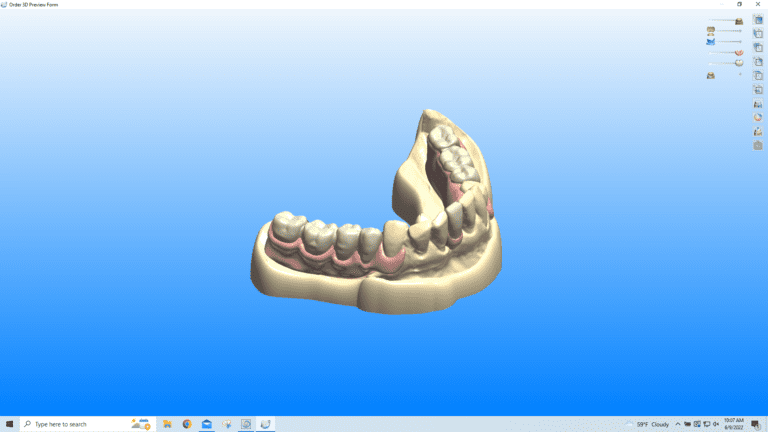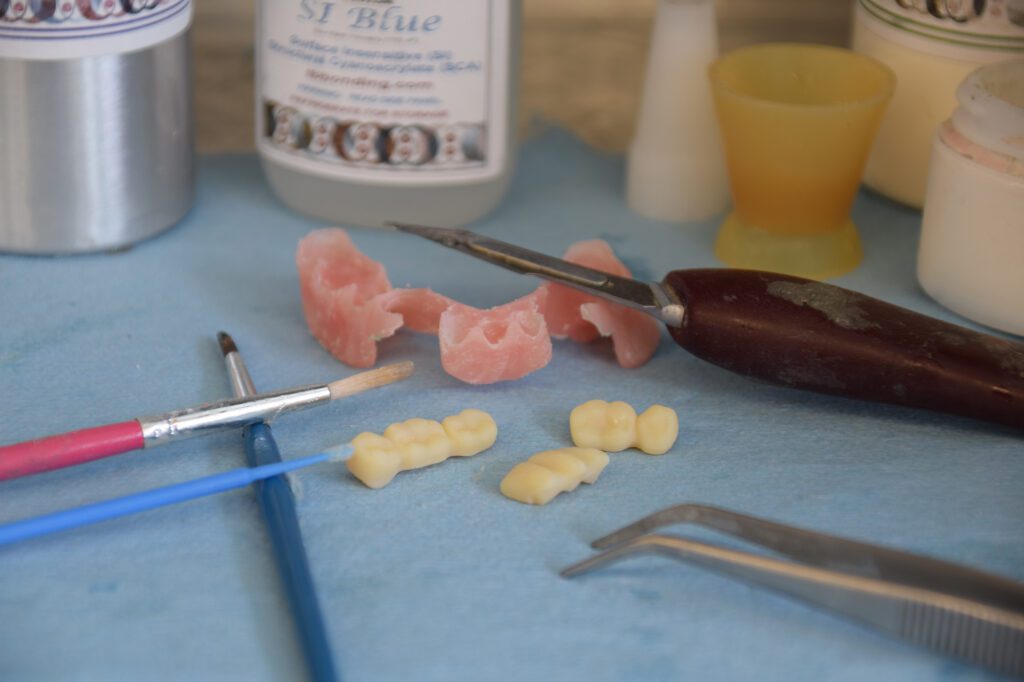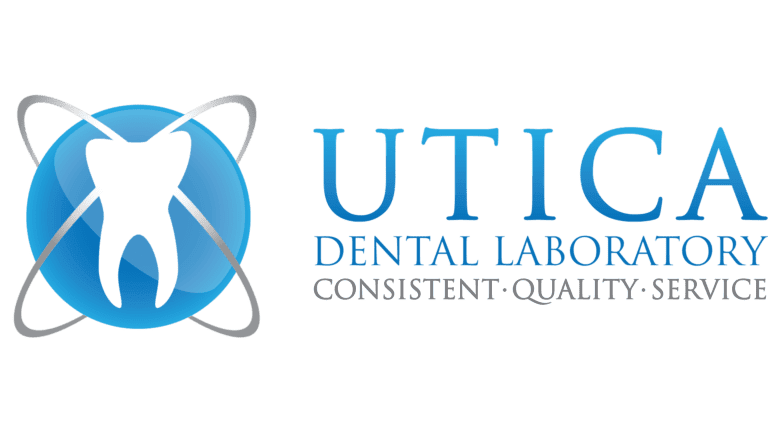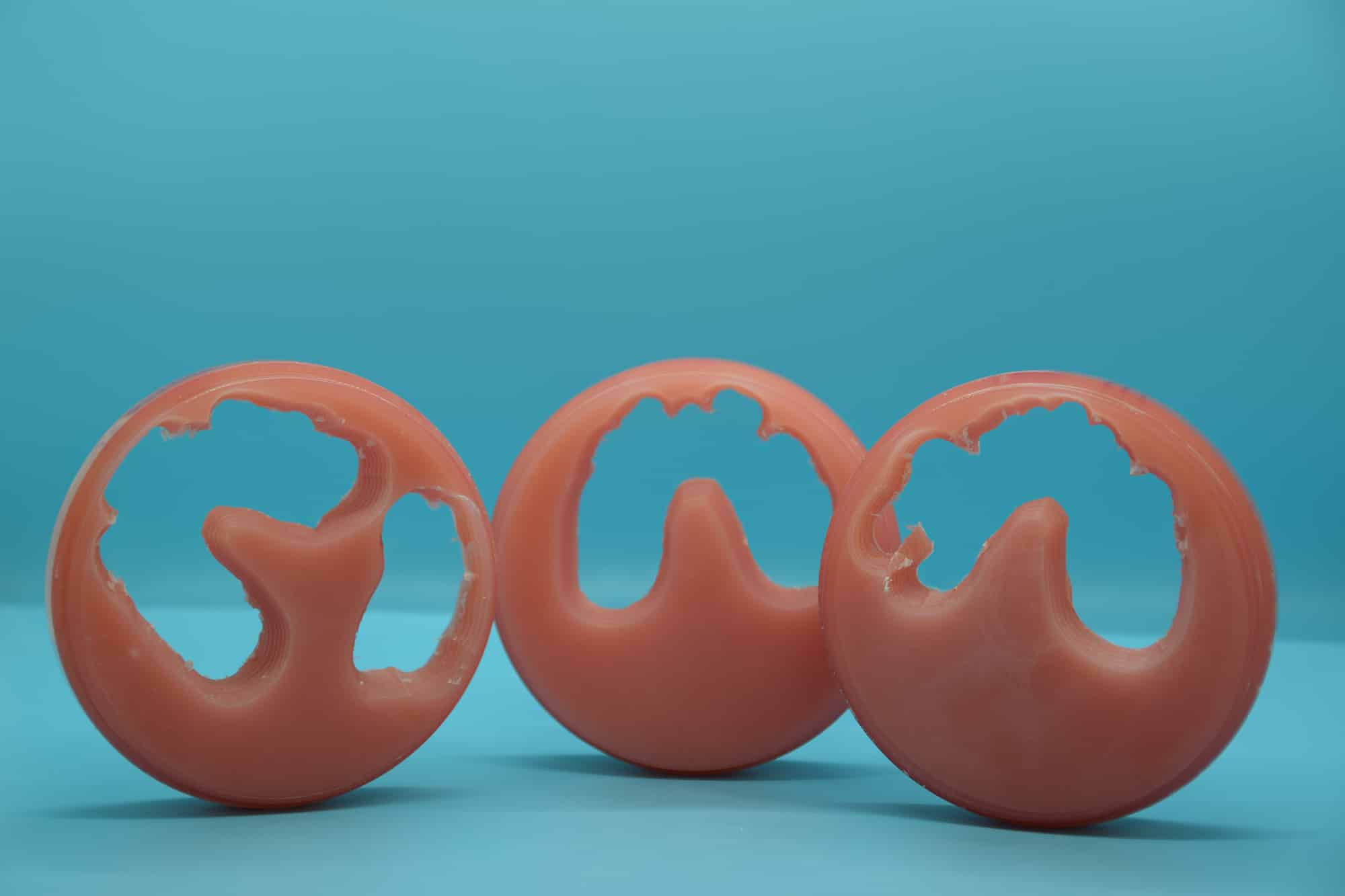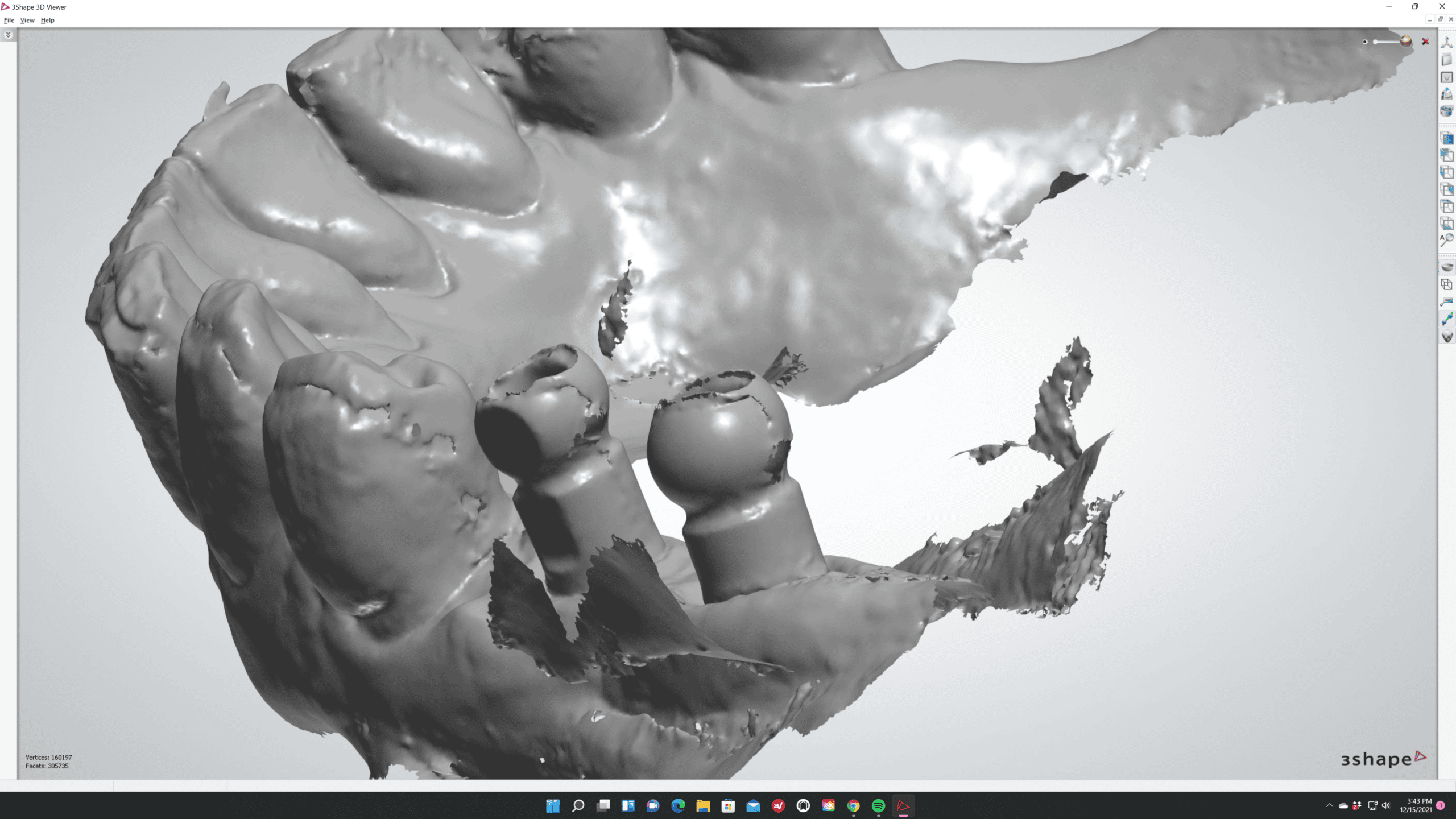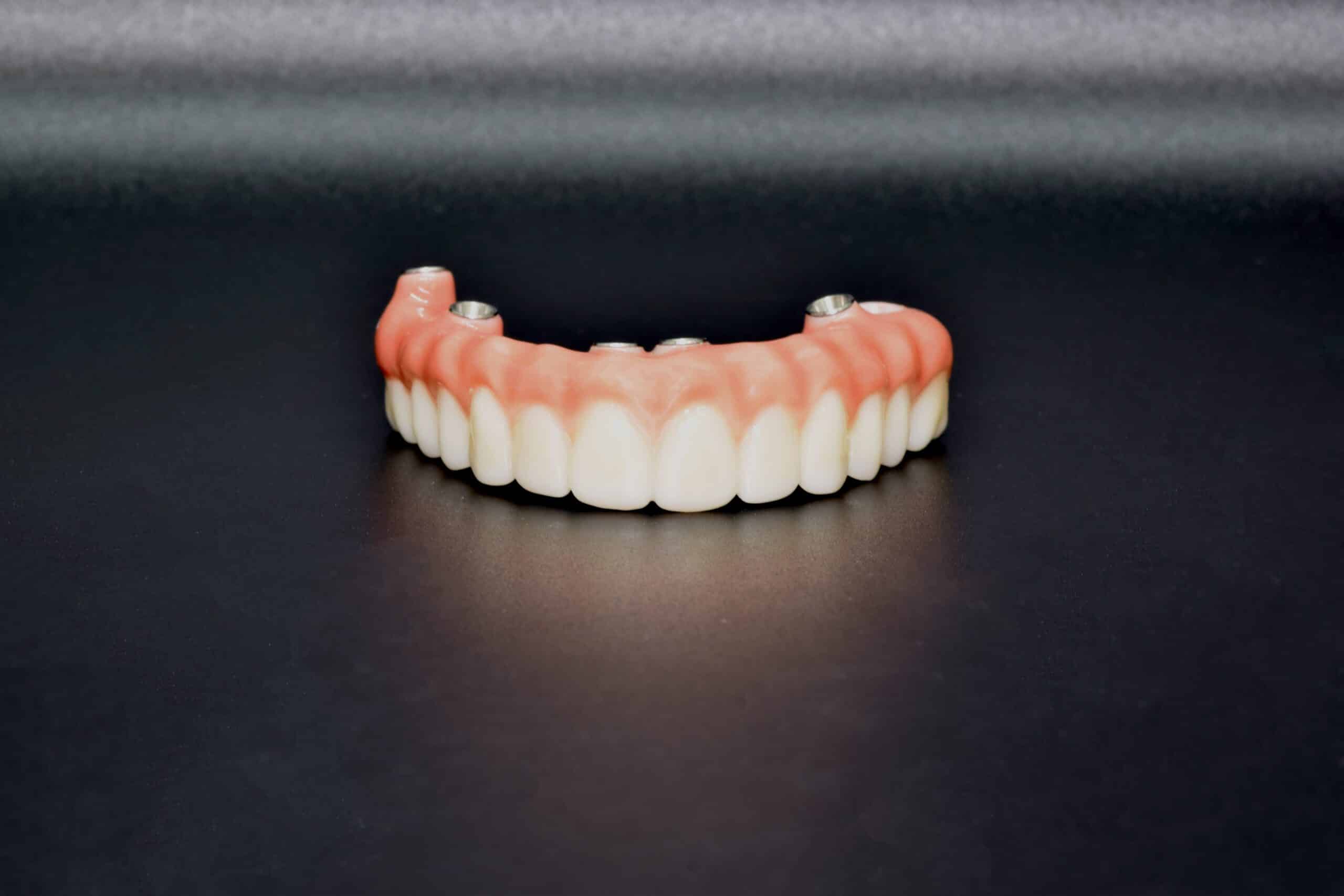Home » Dental Technology » Mill-able Flexible Partial Dentures
Simply put, the TCS Unbreakable Mill-able Flexible Partial Denture is the next logical step in flexible partial design and manufacturing. As the dental laboratory industry continues to adapt to various technological breakthroughs, more products will be opened to a digital workflow.
CAD/CAM designed and precisely milled, our new manufacturing method should improve fit and accuracy while still providing patients with a comfortable material.
Unbreakable Flexible Partial Mill-able Material
TCS describes the material as follows:
“Unbreakable™ is an extremely resilient, high-performance nylon thermoplastic popular for its unbeatable strength and exceptional memory. A guaranteed unbreakable material that allows for a highly durable, lightweight, and aesthetic removable flexible partial.”
The unbreakable material is designed for partial denture framework and offers an ideal degree of flexibility and strength.
The material is fully repairable and uses a specific nylon bonding agent to hold denture teeth. It is available in five shades ranging from light pink – dark pink.
Milled Flexible Partial Material is Superior to Injectable Material
The major advantage to a milled material compared to an injectable material is the ease of use. Injectable materials start as a solid state and are heated to become a liquid, before being injected into a mold and cooled. Mill-able material starts as and remains a solid puck.
The process of creating flexible partials by injection method inherently introduces opportunity for error. Human errors, which are the most common type of error, can include mistakes with preparing the mold, preparing the injectable material, errors while performing the injection, and errors while removing the prosthesis from the mold.
Depending on atmospheric conditions the temperature required for the injection to be optimally performed may differ.
More likely, a lack of attention to detail is the common culprit for mistakes.
Whatever the reason, the injectable method of creating flexible partials often left gaps and poor fits that required additional adjustments or remakes.
Milled material is superior in the sense that, assuming an accurate model is scanned into the software, the design and production will be accurate. CAD/CAM design software is extremely intuitive. An experienced lab technician can be helpful for ensuring an accurate design, but this skill is more easily acquired than traditional benchtop approaches.
Once the design is created the manufacturing is as simple as it comes. Utica Dental Lab uses a Programill 7 from Ivoclar to mill the partial frame from a solid-state disc. The design software has preset measurements for specific denture teeth, allowing for the exact space requirements for the denture teeth.
Once milled, the frame is cut from its struts and the teeth are set before the final prosthesis is polished.
Traditional Impressions and Intra-Oral Scans are Applicable
Partially edentulous scans can be used to accurately determine VDO and Centric relation. Unlike edentulous scans, which still require bite blocks to acquire the vertical information, so long as an opposing articulated scan is provided, we can design the final appliance. A 3D model is printed and used to assess fit.
Alternatively, we can take traditional impressions and create stone models. Then, we scan those models via a 3Shape benchtop scanner and design the denture.
